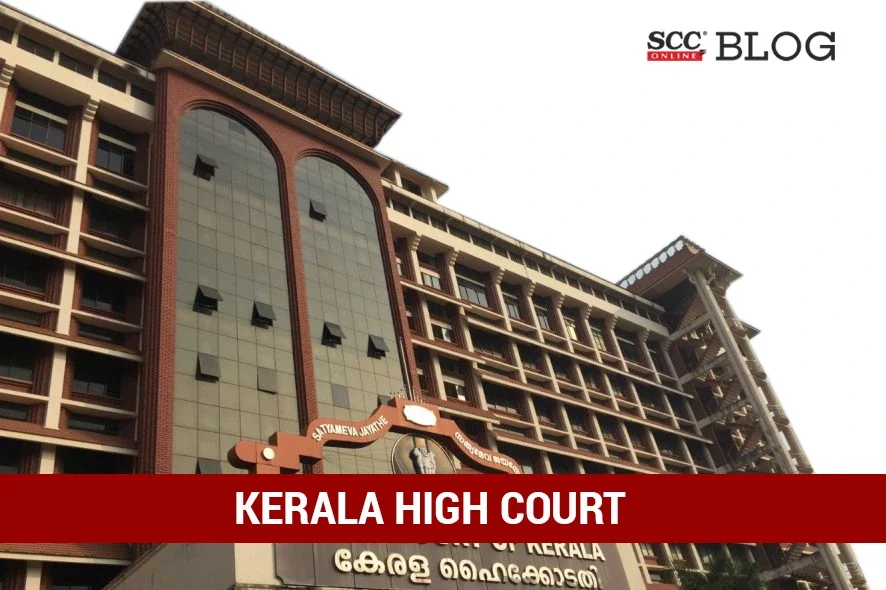Kerala High Court: In a petition seeking to quash First Information Report (‘FIR’), final report and further proceedings as registered by the Vigilance and Anti-Corruption Bureau under Sections Section 13(1)(d) read with Section 13(2) of the Prevention of Corruption Act, 1988 (‘PC Act’) and Section 120B read with Section 34 of Penal Code, 1860 (‘IPC’), K. Babu, J. allowed the petition clarifying that dishonest intention was integral to attract the offence under Section 13(1)(d) of PC Act, and that conduct or action merely being contrary to departmental norms does not mean criminal misconduct on part of the public servant.
Brief Facts
The two petitioners in the instant matter were Port Conservator and Deputy Director of Ports respectively. The order passed by the Director of Ports on 17-08-2013 announced tender of Manual dredging and sale of port sand of various port zones for 2013 and 2014 within the district, fixing the tender date as 3-09-2013. A tender assessment team was constituted, headed by the petitioners and other officials. Meanwhile, the government issued revised guidelines for manual dredging and sale of port sand for 2014. The tender process was conducted in an open tender manner in the presence of representatives of Co-Operative Societies, while various Co-Operative Societies submitted the tender.
12 societies were shortlisted after technical evaluation, and 6 bids were rejected due to failure in enclosing requisite documents and filing proper tender forms. Among the 12 qualified societies, 4 had submitted certificates from registrar without furnishing the list of employees engaged in manual dredging, which was a prerequisite in the tender.
It was claimed that the tender forms lacking requisite documents should have been rejected in the preliminary process, as was done for six other societies, however, the tender team accepted the tenders of 4 societies and allotted different port zones for manual dredging. It was alleged that during the allotment process, the tender committee showed undue favour for the said 4 Co-Operative Societies.
It was alleged that the petitioners committed criminal misconduct and entered into a criminal conspiracy with dishonest intention along with other accused persons who were representatives of societies that participated in the tender and allotted manual dredging of sand in port zones to ineligible societies by violating tender procedures and obtained undue advantage by illegal means.
Court’s Analysis
The Court perused the minutes of the tender process which also depicted that the rates fixed for all the societies were found to be the same. It further analysed specific provisions of the PC Act and expressed that “A reading of Section 13(1)(d) of the PC Act would reveal that a public servant can be prosecuted only if he has abused his position as a public servant and obtained for himself or any other person any valuable thing or pecuniary advantage. The intention of the legislation is not to punish a public servant for erroneous decision, but to punish for corruption.” It further added that for attracting the term ‘abuse’, the prosecution must establish that the position was used for something the official was not intended to, making dishonest intention as the gist of the offence.
The Court noted that the allegations mostly point towards certain irregularities in the tender process, and a conspiracy among the petitioners and accused persons. The Court commented that “It is trite that conspiracy need not be yet necessarily proved by direct evidence. It is also capable of being proved by circumstances pointing out the existence of a conspiracy to commit an unlawful act.” The Court followed Bhagwan Swarup Lal Bishan Lal v. State of Maharashtra, (1964) 2 SCR 378, State of M.P. v. Sheetla Sahai, (2009) 8 SCC 617 and Zakia Ahsan Jafri v. State of Gujarat, 2022 SCC OnLine SC 773 to support the stance.
The Court held ‘dishonest intention’ as a sine qua non to attract offence under Section 13(1)(d) of PC Act, and that mere conduct/action contrary to rules and departmental norms would not amount to criminal misconduct by public servant. To further explain the extent of mens rea, the Court cited Glanville Williams’ ‘Textbook of Criminal Law’ [Third Edition, Dennis. J. Baker, page 95], K.D. Gaur’s Criminal Law [Lexis Nexis, Butterworths, page 37] and C.K. Jaffer Sharief v. State, (2013) 1 SCC 205.
The Court hinted towards the prosecution’s failure to show dishonest intention of the petitioners to commit any acts, while there was no allegation of obtaining any pecuniary advantage. The Court said that “The members of all the Co-operative Societies are labourers engaged in manual dredging, which is hard labour. The Societies were formed with the intent to make a livelihood for the labourers who belonged to the marginalised communities. Most of the alleged enrichment or the alleged pecuniary gain is in the form of their wage, or in other words, they earned the money for their subsistence.” It further commented that “The income earned by the labourers by putting in their hard work at any rate cannot be treated as pecuniary advantage within the mischief of Section 13 of the PC Act.”
Since the FIR or final report did not disclose the offences alleged, the Court said that continuation of proceedings would be an abuse of Court process and cited State of Haryana v. Bhajan Lal, 1992 Supp (1) SCC 335 regarding exercise of extraordinary power under Article 226 of the Constitution of India or the inherent power under Section 438 of Criminal Procedure Code, 1973 (‘CrPC’).
Thus, the Court allowed the instant petition and quashed the final report filed by the Vigilance and Anti-Corruption Bureau along with all further proceedings against the petitioners.
[C. Surendranath v. State of Kerala, 2024 SCC OnLine Ker 210, Order dated 17-01-2024]
Order by: Justice K. Babu
Advocates who appeared in this case:
Advocate Athul Shaji, Advocate Anwin John Antony, Special Government Pleader (Vigilance) Advocate Rajesh A., Public Prosecutor Advocate Rekha







